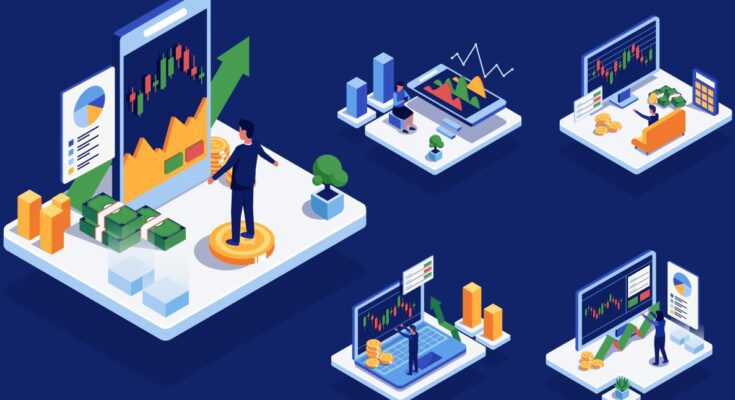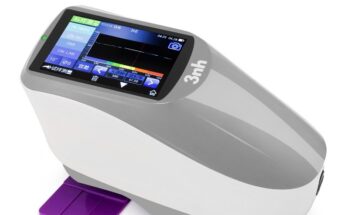Introduction
In the fast-paced landscape of modern business, effective asset management is crucial for organizational success. One groundbreaking solution that has gained prominence is asseturi. In this article, we will explore the ins and outs of asseturi, from its definition to its practical applications, highlighting the key role it plays in transforming asset management.
Understanding Asseturi
Asseturi, derived from “asset” and “URI” (Uniform Resource Identifier), is a comprehensive asset tracking solution designed to manage both digital and physical assets. It provides organizations with a centralized platform for monitoring and controlling their resources.
Asseturi goes beyond traditional asset management systems by offering real-time tracking, ensuring that businesses have accurate and up-to-date information about the location and status of their assets.
Importance of Asseturi
Implementing asseturi brings a myriad of benefits to organizations seeking efficient asset management solutions.
Improved Asset Visibility: One of the primary advantages is the enhanced visibility of assets. Asseturi allows organizations to track assets in real-time, minimizing the risk of loss or misplacement.
Reduced Manual Errors: With automation at its core, asseturi significantly reduces manual errors associated with traditional asset management methods. This not only saves time but also enhances data accuracy.
Enhanced Decision-Making: The availability of precise and real-time asset data empowers decision-makers to make informed choices regarding resource allocation, maintenance, and future investments.
How Asseturi Works
The functionality of asseturi is grounded in a systematic process that involves advanced technology and streamlined workflows.
Integration of Asset Tracking Software: Asseturi integrates with asset tracking software, utilizing technologies such as barcode scanning and RFID. This integration automates the tracking process, ensuring that organizations can monitor assets efficiently.
Workflow Streamlining: By automating asset tracking, asseturi contributes to the overall streamlining of workflows. This results in increased operational efficiency and a reduction in unnecessary manual tasks.
Core Functionality:
The core functionality of asseturi revolves around effective asset tracking, offering a range of features that cater to the diverse needs of organizations.
Barcode Scanning: Asseturi employs barcode scanning technology, allowing for quick and accurate identification of assets. This is particularly valuable in environments with a large number of assets that need to be tracked.
RFID Technology Integration: The integration of RFID technology enables asseturi to provide real-time location tracking. This is especially beneficial for industries where precise location data is critical, such as logistics and manufacturing.
Customizable Reporting: Asseturi offers customizable reporting features, allowing organizations to generate reports tailored to their specific requirements. This flexibility enhances the adaptability of asseturi to different business contexts.
Sector Applications:
Asseturi finds applications across various industries, bringing value to sectors that require meticulous asset tracking.
Healthcare: In the healthcare sector, asseturi is utilized to track medical equipment, ensuring that crucial devices are always available when needed. This improves patient care and operational efficiency.
Manufacturing: Manufacturing units leverage asseturi for inventory management. The ability to monitor the movement and status of raw materials and finished products enhances production efficiency.
Education: Educational institutions use asseturi to track and manage valuable resources such as computers, projectors, and other educational tools. This ensures proper utilization and prevents loss or theft.
Integration Strategies:
The successful integration of asseturi into existing systems requires careful planning and execution.
Comprehensive Asset Management Systems: Organizations often choose to integrate asseturi into comprehensive asset management systems. This approach ensures a seamless connection between asset tracking and overall organizational management.
Thorough Training: Implementing asseturi necessitates thorough training for the staff involved. This includes training on using the tracking system, interpreting data, and troubleshooting common issues.
Continuous Monitoring: Post-implementation, continuous monitoring is essential to identify and address any challenges that may arise. Regular updates and system checks contribute to the long-term success of asseturi integration.
Common Hurdles:
While the benefits of asseturi are substantial, organizations often face challenges during the adoption phase.
Data Migration Issues: Transitioning from traditional asset management methods to asseturi may involve migrating large amounts of data. Ensuring a smooth data migration process is crucial to maintaining data accuracy and integrity.
Resistance to Change: Employees may resist adopting new technologies, especially if they are accustomed to existing systems. Addressing this resistance requires effective communication and comprehensive training programs.
Financial Investments: Implementing asseturi may require significant financial investments, particularly for small and medium-sized enterprises. Understanding the long-term benefits is essential to justify these initial costs.
Technological Advancements:
As technology evolves, so does asseturi. Future trends point to exciting developments that will further enhance its capabilities.
Artificial Intelligence for Predictive Maintenance: Integration with artificial intelligence will enable asseturi to predict maintenance needs, reducing downtime and extending the lifespan of assets.
Blockchain for Enhanced Security: The utilization of blockchain technology will enhance the security of asseturi by providing a tamper-proof and transparent record of asset transactions.
IoT for Real-Time Tracking: The integration of the Internet of Things (IoT) will enable real-time tracking of assets, providing even more accurate and timely data to organizations.
Successful Implementations:
Examining real-world examples of organizations successfully implementing asseturi provides valuable insights.
Company A: Implemented asseturi and witnessed a 30% reduction in operational costs within the first year. Real-time tracking allowed for efficient resource allocation and improved overall productivity.
Company B: Utilized asseturi in the manufacturing sector, leading to a 25% increase in inventory accuracy. The ability to track the movement of raw materials and finished products streamlined production processes.
Company C: Integrated asseturi into healthcare operations, resulting in a 20% decrease in equipment downtime. Predictive maintenance, enabled by AI integration, played a crucial role in achieving this improvement.
Security Measures in Asseturi
As organizations rely increasingly on digital assets, ensuring robust data protection is paramount for asseturi.
Encryption: Asseturi incorporates encryption measures to protect sensitive data. This ensures that information related to asset location, condition, and maintenance schedules remains confidential and secure.
Access Controls: Implementing access controls is essential to prevent unauthorized personnel from accessing sensitive asset data. Asseturi allows organizations to define and enforce access policies based on roles and responsibilities.
Regulatory Compliance in Asseturi
Compliance with regulations is a critical aspect of asseturi implementation.
Data Privacy Regulations: Organizations must adhere to industry-specific data privacy regulations when implementing asseturi. Ensuring compliance with laws such as GDPR or HIPAA is essential to protect user data.
Asset Tracking Regulations: In certain industries, there are specific regulations governing asset tracking. Understanding and adhering to these regulations is crucial to avoid legal complications and ensure a smooth implementation.
Conclusion
In conclusion, asseturi emerges as a transformative force in the realm of asset management. Its ability to seamlessly track and manage assets, coupled with ongoing technological advancements, positions it as a cornerstone for organizational success. As industries continue to evolve, embracing asseturi is not just an option but a strategic imperative for those aiming to stay competitive in the dynamic business landscape.





